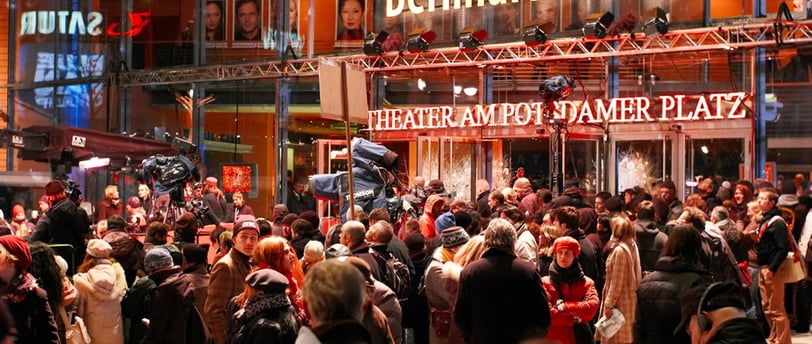Only for my family and close friends.
Berlin International Film Festival (Berlinale)
Founded in 1951, Germany Cinema in dialogue with the world’s conscience.
FESTIVALS
5/24/20252 นาทีอ่าน


The Berlinale, held each February in Berlin, is one of the world’s most politically engaged and socially conscious film festivals.
Founded at the height of the Cold War as a cultural response to the tensions dividing East and West, the Berlinale has always embraced cinema as a force for dialogue, dissent, and discovery.
With its top prize—the Golden Bear—awarded to daring films that challenge conventions and confront pressing social issues, the festival has consistently amplified bold, diverse, and humanistic voices from every corner of the globe.
Unlike Cannes or Venice, the Berlinale has long prioritized inclusion, political commentary, and boundary-pushing narratives over glamour. It has been a haven for filmmakers addressing identity, migration, inequality, and justice.
The audience is known for its seriousness and critical engagement, and the festival has become a space where cinema meets activism, protest, and artistic experimentation.
2000–2009: Stories of Resistance and Human Dignity
The first decade of the 21st century at the Berlinale highlighted films from emerging democracies, post-Soviet regions, and underrepresented communities. It rewarded work that interrogated nationalism, trauma, and memory—often through personal, character-driven stories.
Political critique and deep humanism were central values of this period. The festival became a major space for Eastern European and Latin American filmmakers seeking artistic freedom and global recognition.
4 Essential Films (2000–2009):
Spirited Away (2002, Hayao Miyazaki – Japan) – A magical allegory on consumerism and loss of identity.
Head-On (2004, Fatih Akin – Germany/Turkey) – A raw, punk-infused tale of love, trauma, and diaspora.
Grbavica (2006, Jasmila Žbanić – Bosnia-Herzegovina) – A moving portrait of a mother and daughter haunted by war.
The Milk of Sorrow (2009, Claudia Llosa – Peru) – A poetic exploration of inherited trauma and resilience.
2010–2019: Migration, Gender, and the Global South
This decade cemented Berlinale’s role as the premier space for feminist, queer, and Global South cinema.
The Golden Bear was awarded to many first-time or politically marginalized filmmakers. Major themes included migration, gender identity, systemic oppression, and mental health.
The festival deliberately steered away from Hollywood aesthetics in favor of slower, intimate, and confrontational narratives that demanded introspection. It reflected a world increasingly fractured—and a cinema that refused to look away.
4 Essential Films (2010–2019):
Fire at Sea (2016, Gianfranco Rosi – Italy) – A haunting documentary about the refugee crisis on Lampedusa.
Touch Me Not (2018, Adina Pintilie – Romania) – A bold hybrid work about intimacy, vulnerability, and the body.
There Is No Evil (2019, Mohammad Rasoulof – Iran) – A defiant anthology about conscience and the death penalty.
Black Coal, Thin Ice (2014, Diao Yinan – China) – A noir-infused thriller exploring alienation and violence in post-industrial China.
2020–2024: Cinema in a Fragmented World
Post-COVID, the Berlinale doubled down on its commitment to political and ethical filmmaking. In a fragmented, war-torn, and digitally mediated world, the films it rewarded were often meditative, formally bold, and ethically charged.
From Ukraine to the Middle East, from transgender narratives to postcolonial resistance, the Berlinale leaned into cinema as a mirror of global unrest and possibility.
The selection increasingly included genre-defying works, documentaries, and feminist experiments, confirming that the Golden Bear is not a trophy of glamor, but a badge of moral and artistic courage.
4 Essential Films (2020–2024):
On the Adamant (2023, Nicolas Philibert – France) – A tender documentary about a psychiatric care boat on the Seine.
Alcarràs (2022, Carla Simón – Spain) – A quietly devastating tale of rural life and generational loss.
Bad Luck Banging or Loony Porn (2021, Radu Jude – Romania) – A provocative satire on public morality and censorship.
Sur l’Adamant (2023, Nicolas Philibert – France) – A poetic tribute to the healing power of art and empathy.
